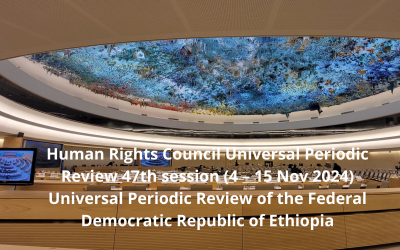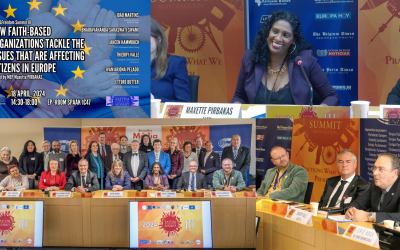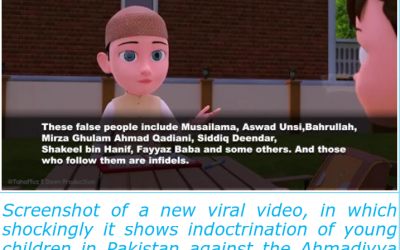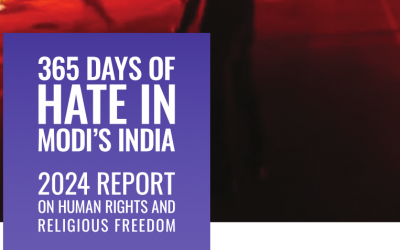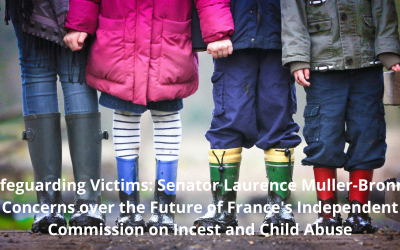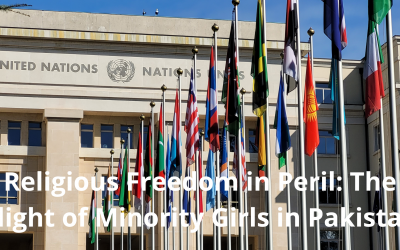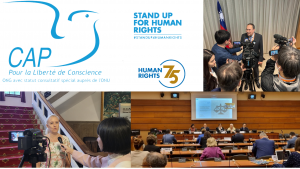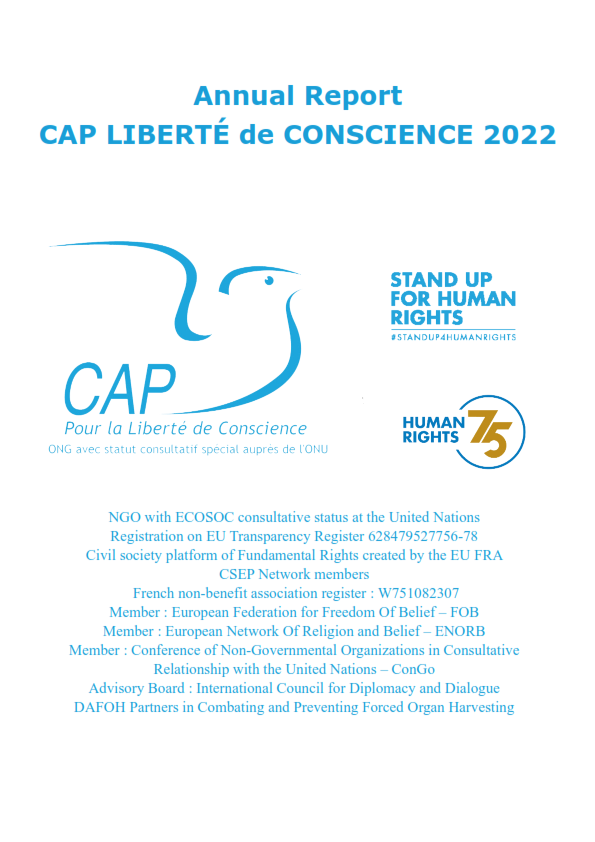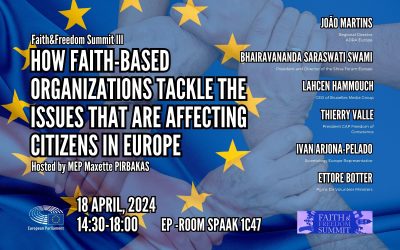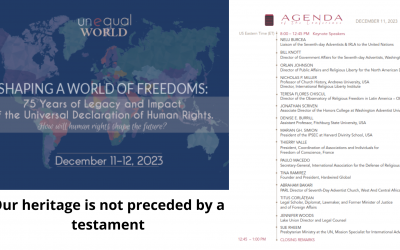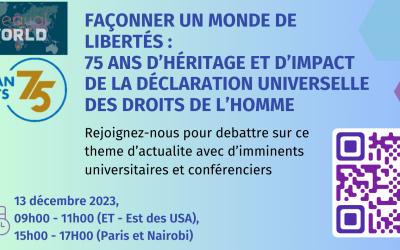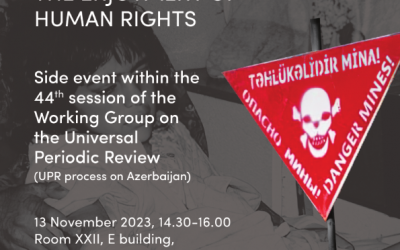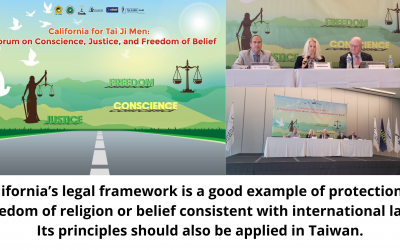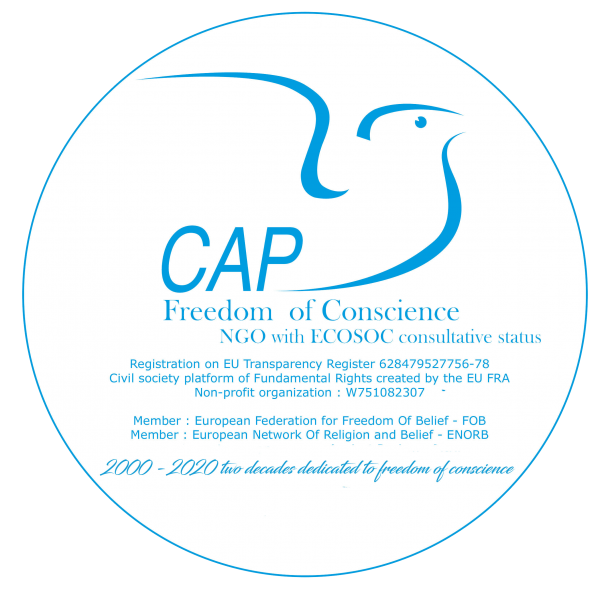
What is “Coordination des Associations et des Particuliers pour la Liberté de Conscience” (CAP Freedom of Conscience)?
CAP Freedom of Conscience is a secular European NGO with United Nations Consultative Status, created in 1995 and dedicated to protect the Right of Freedom of Religion and Belief.
CAP Freedom of Conscience combats all forms of discrimination based on religion or belief by alerting European and International bodies.
CAP Freedom of Conscience collects testimonies of discrimination and human rights violations affecting religious or belief communities in order to disseminate them to international bodies, and in order to raise awareness and inform them as well as to generate debate on the protection of Freedom of Religion and Belief.
CAP Freedom of Conscience also advocates for any religious or spiritual group facing discrimination to have their right to Freedom of Religion and Belief recognized.
CAP Freedom of Conscience is a member of the European Federation for Freedom of Belief (FOB), European Network Of Religion and Belief (ENORB) and participate to the Civil Society Platform of Fundamental Rights created by the EU Fundamental Rights Agency DAFOH Partners in Combating and Preventing Forced Organ Harvesting
Human Rights Council Universal Periodic Review 47th session (4 – 15 Nov 2024) Universal Periodic Review of the Federal Democratic Republic of Ethiopia
Ethiopia is a multi-ethnic country with over 76 different groups. The Amhara people are one of the largest ethnic groups with a history spanning over 4000 years in Ethiopia, distributed across various regions of the country. However, they have been impacted significantly by targeted attacks, displacement, and grave human rights violations. This report aims to address the widespread abuses faced by the Amhara community throughout Ethiopia,.
Faith and Freedom Summit 2024 HOW FAITH-BASED ORGANIZATIONS TACKLE ISSUE THAT ARE AFFECTING CITIZENS IN EUROPE
First of all I would like to thank Mrs Maxette Pirbakas MP and the organisers of this 3rd Faith and Freedom summit for inviting me to give you a presentation on the theme of “the social action of Faith-Based Organizations”. I would like to take you on a journey through time, exploring the profound impact of Faith-Based organisations in promoting peace and social equality from the 15th century to the present day.
Anti-Ahmadiyya video targeting little children is going viral to sow the seeds of hatred, fanaticism, and bigotry in the minds of innocent Pakistani children
This video is shocking because it shows the indoctrination of young children in Pakistan against the Ahmadiyya Muslim Community and its founder. It shows the hatred and incitement of violence against Ahmadi Muslims in Pakistan is not just done by the mature adults of Pakistan but also the young children are also joining in. This is deeply worrying, and the International Community must act now. It is these children who are going to grow up to be the future leaders of Pakistan and their hatred and prejudice at such a young age is deeply troubling. The International Community must ensure the youth of Pakistan are raised with tolerance, compassion and open-mindedness in line with International Human Rights Law as well as the Teachings of Islam.
IAMC Annual Report on Human Rights and Religious Freedom in India (2024)
The Indian American Muslim Council (IAMC), a U.S.-based advocacy organization, recently released its annual report titled “365 Days of Hate: 2023 in Modi’s India.” The 49-page report aims to inform legislators and policymakers about human rights conditions in India under Prime Minister Narendra Modi and his ruling Bharatiya Janata Party (BJP).
Safeguarding Victims: Senator Laurence Muller-Bronn’s Concerns over the Future of France’s Independent Commission on Incest and Child Abuse
In a recent parliamentary question, Senator Laurence Muller-Bronn of the Bas-Rhin region has expressed deep concerns over the troubling situation surrounding the Independent Commission on Incest and Violence against Children (Ciivise) in France. This comes on the heels of a recent UN expert declaration urging France to protect children from incest and all forms of sexual abuse.
Religious Freedom in Peril: The Plight of Minority Girls in Pakistan
https://freedomofconscience.eu/42th-upr-session-pakistan-jan-feb-2023-persecution-of-ahmadis-in-pakistan/
CAP Freedom of Conscience involvement in Europe
Social Impact of Faith-Based Organizations in Europe
FBO’s play a significant role in addressing societal challenges, promoting social cohesion, and advocating for the values of faith and freedom in the European Union (EU). This conference aims to provide a platform for MEPs and Civil Society to discuss the challenges, opportunities and impact of FBOs and their contributions to a more inclusive and sustainable society inside Europe.
Assessing China’s Governance and Human Rights Landscape/ Invite
BRUSSELS CONFERENCE
Assessing China’s Governance and Human Rights Landscape
Our heritage is not preceded by a testament
Hannah Arendt quotes an aphorism by René Char (published in Feuillets d’Hypnos in 1946). “During the Resistance, a generation of European writers and men of letters created, in the political vacuum created by the collapse of the old system, a distinct public sphere, a bare space in which freedom could appear. But this opportunity did not last long. This treasure, which had appeared unexpectedly under mysterious circumstances, was soon lost. That generation was unable to give it a name. The history of revolutions was repeating itself.
Conference 13 Decembre – Façonner un monde de libertés : 75 ans d’héritage et d’impact de la Déclaration Universelle des Droits de l’Homme
Dans le cadre de la commémoration du 75e anniversaire de la Déclaration Universelle des Droits de l’Homme, un groupement d’Associations et d’ONG collaborant avec les Nations Unies organise une conférence en ligne les 11 et 12 décembre 2023 (en anglais) et le 13 décembre 2023 (en français). Cette conférence qui a pour thème « Façonner un monde de libertés : 75 ans d’héritage et d’impact de la Déclaration Universelle des Droits de l’Homme ! Comment les Droits de l’Homme façonneront-ils l’avenir ? », vise à explorer l’influence durable et la pertinence de cette Déclaration.
Information meeting on the UPR process in Azerbaijan
UPHOLDING UNIVERSAL COMMITMENTS:
Addressing the damaging impact of landmines on the enjoyment of human rights
Side event within the 44 session of the Working Group on the Universal Periodic Review
Room XXII, E building, Palais des Nations, Geneva 13 November 2023 / 14.30-16.00
California for Tai Ji Men: Conscience, Justice and Freedom of Belief
California, the Golden State, is known for its stunning landscapes, thriving entertainment industry, and diverse culture. Beneath the surface of this multifaceted state lies another remarkable aspect of its diversity: religious pluralism. From the Spanish missions of the 18th century to the bustling metropolises of the 21st century, California’s religious landscape has evolved into a vibrant tapestry of faiths and beliefs.

